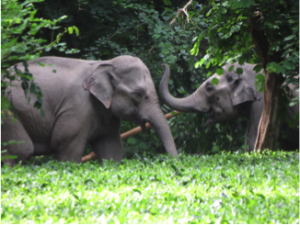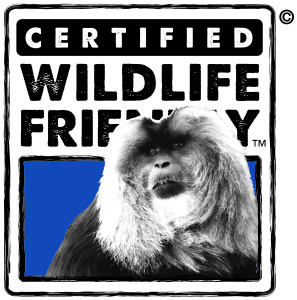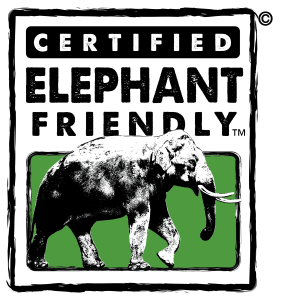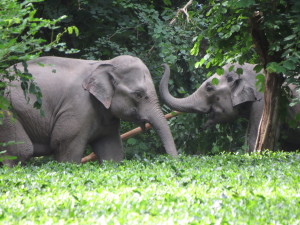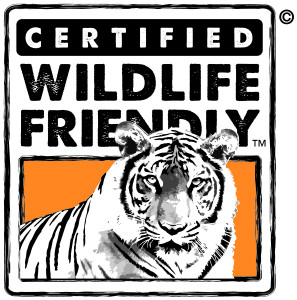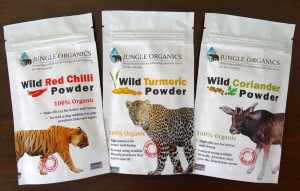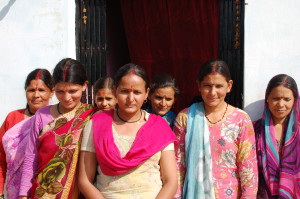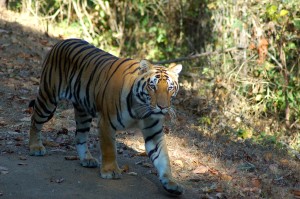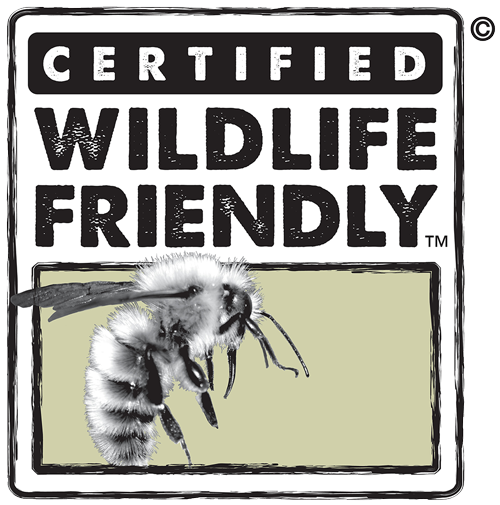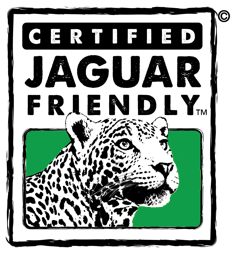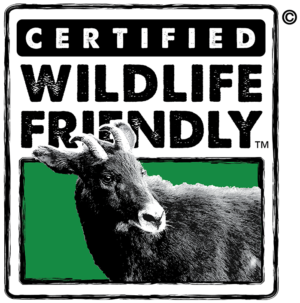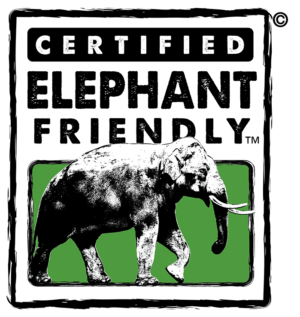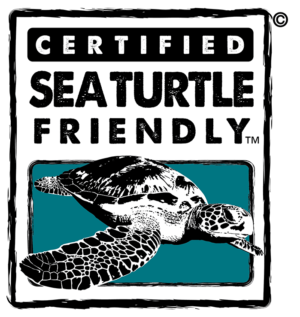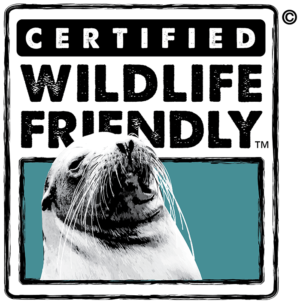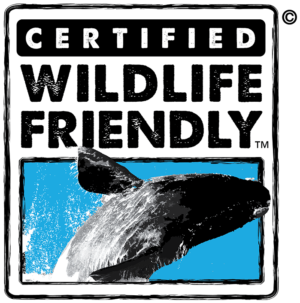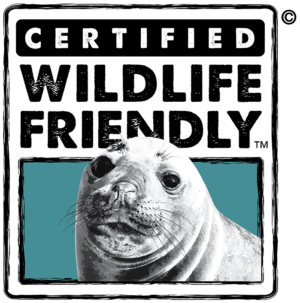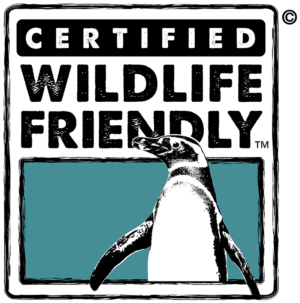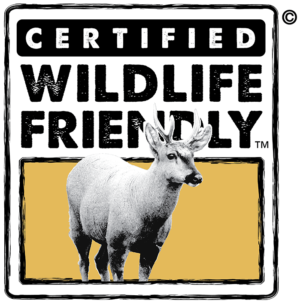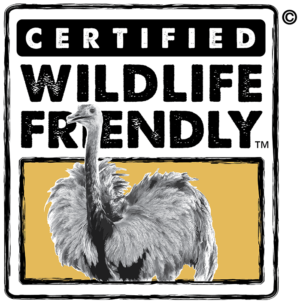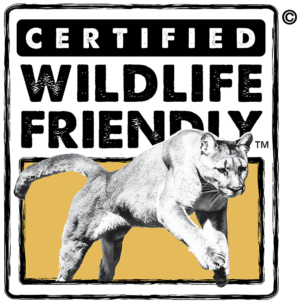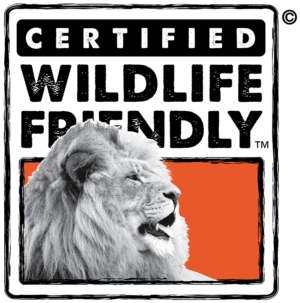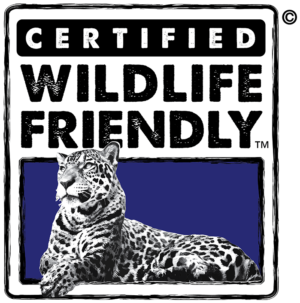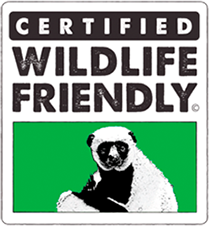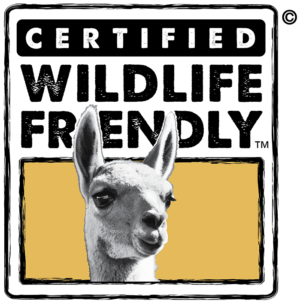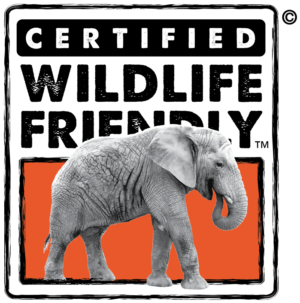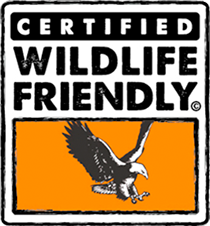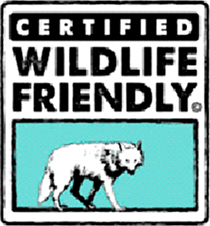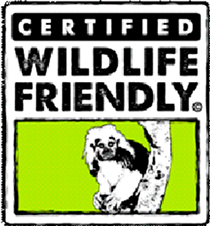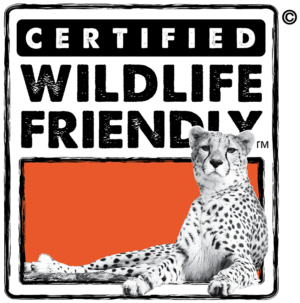New Science-Based Elephant Friendly™ Tea Certification Standards Released for 2020

WFEN partners with the University of Montana for state-of-the-field best practice standards for the India tea sector with goal of reducing mortality and ensuring landscape connectivity for endangered Asian Elephants
FOR IMMEDIATE RELEASE
Missoula, Montana – 20 January 2020 – The Wildlife Friendly Enterprise Network (WFEN) has collaborated with experts via a partnership with the University of Montana to develop new science-based standards for the certification of tea producers under the Certified Elephant Friendly™ Tea label. Asian elephant populations are recognized as “globally endangered,” and India is home to the largest remaining population of this species. Over the past 75 years, the Asian elephant population has declined more than 50 percent and only an estimated 45,000 to 50,000 remain in the wild. At least seventy percent of tea agriculture lands in India overlap with elephant range. Commercial tea production in India, which was established in the 1800’s during British Colonial period, continues as a major agricultural industry with India now the second largest tea producer in the world. Human activities have led to widespread habitat loss and fragmentation, yet elephants often use tea plantations as stepping stones between fragments of remaining habitat along their ancient movement routes, sometimes giving birth in tea gardens or visiting the crop fields at the edges of tea gardens opportunistically to forage on rice or other crops. Some of the most substantial – yet fixable – challenges elephants face in and around tea lands include electrocutions, chemical poisoning, ditch hazards, blockage of corridors of movement, degradation of habitat, and human-elephant conflict. The new standards provide guidelines for tea growers who wish to pursue Elephant Friendly™ Tea Certification.

Photo credit: Rajen Boro, Assam, India
The Elephant Friendly™ Tea certification program was developed as an incentive for tea producers to provide safe passage for endangered elephants and to improve tea community safety by applying evidence-based best practices. “By decreasing elephant mortality and human-elephant conflict, the certification program provides a pathway for tea producers to help reverse the global decline of Asian elephants, while simultaneously improving the well-being of tea workers who are often on the front lines of human-elephant conflict,” says Scott Mills, a wildlife biologist at University of Montana, who serves as a scientific partner in the development of the new standards. The costs of implementing the best practices ultimately are expected to be offset over time with premium pricing for Certified Elephant Friendly™ products in a growing global tea market where retailers and consumers increasingly care about sustainability issues. “We are happy to see so much interest from both consumers and tea companies who were both largely unaware their tea had impacts on wild elephant populations, as well as tea growers who would like to communicate their Elephant Friendly™ stories through the label. When tea growers make the transition to growing Certified Elephant Friendly™ Tea, they implement transformative changes that help both elephants and local communities,” says Julie Stein, Executive Director and co-founder of the Wildlife Friendly Enterprise Network, the organization that oversees certification of tea growers under the new standards. As for the tea drinkers who collectively consume 7 billion cups of tea per day, their purchase of Elephant Friendly® Tea makes them active partners in the conservation of endangered wild elephants, one cup at a time.
Contact
To learn more about the Elephant Friendly™ Tea program and the new standards please visit: https://wildlifefriendly.org/elephant-friendly-tea-standards/ or email info@wildlifefriendly.org
Retailers interested in certified products can email elephantfriendly@wildlifefriendly.org
###
About Wildlife Friendly Enterprise Network
WFEN and its certification programs represent grassroots farmers, ranchers, artisans, indigenous peoples and conservation heroes from around the world, including two World Bank Development Marketplace Award winners, a U.N. Equator Prize winner, leadership in the world’s marketplace for REDD+ Carbon Offsets, and a Time Hero for the Planet. Certified Wildlife Friendly® products contribute to the conservation of over fourteen million hectares of diverse wetlands, forests, and grasslands; protect keystone endangered species in Asia, Africa, Europe, and Latin and North America – including the snow leopard, tiger, elephant, cheetah, red panda, and wolf – and benefit over 300,000 people through increased food security, income and employment. For more information visit: www.wildlifefriendly.org
About University of Montana
The University of Montana, a research and higher education institution located in Missoula, Montana, USA, is home of the top-ranked Wildlife Biology Program in North America, and partners in the development of the Elephant Friendly™ Tea Certification Program. For more information, go to: https://www.umt.edu/
Elephant Friendly™ Tea helps secure a future for wild elephants
FOR IMMEDIATE RELEASE
Las Vegas, Nevada: – June 12, 2017– The Wildlife Friendly Enterprise Network (WFEN) and the University of Montana (UM) Broader Impacts Group are pleased to announce the launch of the world’s first Elephant FriendlyTM Tea Certification at this year’s World Tea Expo, where the Elephant FriendlyTM Tea team will showcase tea from plantations that are certified as Elephant FriendlyTM, supporting the survival of the endangered Asian elephant.
WFEN, a global community dedicated to the development of products and tourism that contribute to the conservation of threatened wildlife and to the economic vitality of rural landscapes, is partnering with the University of Montana, home to the top-ranked Wildlife Biology program in North America, to engage tea growers, sellers and consumers in a ground-breaking farm-to-cup approach to support the conservation of endangered Asian elephants, Elephas maximus.
Since the early 1800’s tea consumption has been on the rise, and today it is the most popular beverage worldwide. Tea plantations have replaced much of the natural habitat of Asian elephants and other species. Habitat loss and the associated human-elephant conflict, which often leads to loss of life for both people and elephants, have contributed significantly to the decline of Asian elephant populations. According to the IUCN Red List, Asian elephants are an endangered species, with an estimated 40,000-50,000 remaining across their range countries, a decline of over 50% in the last 75 years. India holds at least 50% of the remaining population and is the world’s second largest tea producer, with tea lands primarily located in areas historically inhabited by elephants.
Engaging tea growers as active partners in elephant conservation is critical to the future of Asian elephants in the wild. Agricultural lands planted for tea production can play a vital role as corridors of movement between natural areas. Tea plantations often serve as nurseries where mothers give birth and rest for a few days until their newborn babies are strong enough to move with the herd.
However, agricultural practices on tea estates can present potential hazards for elephants, such as the use of deep and narrow drainage ditches which can trap infant and juvenile elephants. Improperly installed electric fencing or sagging electricity lines can pose electrocution risks for elephants. Chemicals used in conventional tea production, if not stored securely or applied judiciously, can poison elephants. In addition, human-elephant conflict can have grave consequences for both elephants and tea worker communities.
An innovative market-based solution comes in the form of a new Elephant FriendlyTM Certification program providing 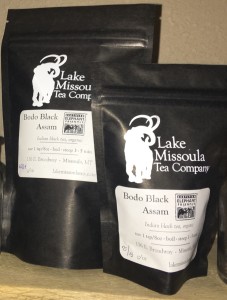
Lisa Mills, who serves as the liaison for the University of Montana on this project, explains: “We are encouraged by the interest we are seeing from tea growers and tea buyers who want to join the Certified Elephant FriendlyTM Tea program. With a percentage of every sale going back to support elephant conservation in the communities where the tea is grown, tea drinkers can enjoy great tea while supporting human-elephant coexistence.”
“To be certified under this program tea growers must meet strict “elephant friendly” standards which have been vetted by experts on elephants in this part of the world, “ said Julie Stein, Executive Director and Co-founder of WFEN. “We are excited to see that the tea is commanding a strong price premium in the marketplace, which is early proof-of-concept that consumers will support the conservation mission. “
By buying Elephant FriendlyTM Tea consumers are helping sustain wild elephant populations and secure their future. Interested companies and consumers can learn more at https://elephantfriendlytea.com/or on Facebook at: https://www.facebook.com/elephantfriendlytea
About the Wildlife Friendly Enterprise Network
WFEN and its certification programs represent grassroots farmers, ranchers, artisans, indigenous peoples and conservation heroes from around the world, including two World Bank Development Marketplace Award winners, a U.N. Equator Prize winner, leadership in the world’s marketplace for REDD+ Carbon Offsets, a Time Hero for the Planet, and a National Geographic Big Cats Initiative grantee. Certified Wildlife Friendly® products contribute to the conservation of over twelve million hectares of diverse wetlands, forests, and grasslands; protect keystone endangered species in Asia, Africa, Europe, and Latin and North America – including the snow leopard, tiger, elephant, cheetah, red panda, and wolf – and benefit over 200,000 people through increased food security, income and employment. For more information visit: www.wildlifefriendly.org
About the University of Montana
The University of Montana (UM), located in Missoula, Montana, USA, is a higher education institution, home to the top-ranked Wildlife Biology Program in North America and award-winning research, outreach and business innovation programs. The Elephant FriendlyTM Program is a partnership between the University of Montana’s Broader Impacts Group at https://www.umt.edu/big/, the Wildlife Friendly Enterprise Network, and business and conservation science advisors from across the globe. The UM Blackstone Launchpad and UM School of Business provide additional planning and marketing support.
Contact
Wildlife Friendly
Julie Stein: Julie@wildlifefriendly.org
University of Montana
Lisa Mills: lisa.mills@mso.umt.edu
Wild Kaapi™ empowers coffee drinkers to do good with every cup of Certified Wildlife Friendly™ coffee
FOR IMMEDIATE RELEASE
WESTERN GHATS, INDIA: JUNE 1 2017—The Wildlife Friendly Enterprise Network (WFEN), a global community dedicated to the development of products and tourism that contribute to the conservation of threatened wildlife and to the economic vitality of rural landscapes, is pleased to announce the awarding of Wildlife Friendly™ Certification to Wild Kaapi™ coffee company.
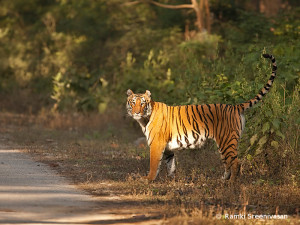
Tiger in the Western Ghats. Photo: Ramki Sreenivasan
Wild Kaapi™ emerged out of a scientific effort to measure on-farm biodiversity, market dynamics and the management actions of more than 1100 farmers in India’s Western Ghats. The Western Ghats of India are a global biodiversity hotspot home to the largest population of wild tigers, elephants and endemic amphibians and birds not found anywhere on the planet. The coffee landscapes of Karnataka present ideal conditions for promoting wildlife-friendly practices in coffee production.
Wild Kaapi’s coffee is sourced from coffee farms that are now certified Wildlife Friendly™ through rigorous scientific audits for birds, butterflies, mammals, amphibians and trees. The vision for the company is to build sustainable livelihoods and create a network of coffee growers who foster thriving populations of wildlife on their lands while delivering the highest quality of freshly roasted coffee to consumers.
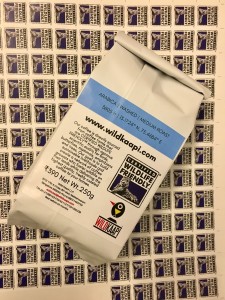
At launch Wild Kaapi™offers single origin coffees from Wildlife Friendly™ farms in the Chikmagalur District in Karnataka, the birthplace of coffee in India.
“Agricultural lands are increasingly important as critical refuges and corridors for wildlife globally who are facing multiple threats from climate change to habitat conversion” said Julie Stein, Executive Director and co-founder of WFEN. “We are thrilled to welcome Wild Kaapi™ as the first Wildlife Friendly™ coffee company in the world. Wild Kaapi™ sets a high standard for ensuring biodiversity on coffee farms in India’s Western Ghats truly ensuring that we as consumers are empowered to support wildlife conservation and sustainable agricultural with every cup of coffee – a true triple bottom line win.”
###
About Wildlife Friendly Enterprise Network
WFEN and its certification programs represent grassroots farmers, ranchers, artisans, indigenous peoples and conservation heroes from around the world including two World Bank Development Marketplace Award winners, a U.N. Equator Prize winner, leadership in the world’s marketplace for REDD+ Carbon Offsets, a Time Hero for the Planet, and a National Geographic Big Cats Initiative grantee. Certified Wildlife Friendly® products contribute to the conservation of over twelve million hectares of diverse wetlands, forests, and grasslands; protect keystone endangered species in Asia, Africa, Europe, and Latin and North America, including the Snow Leopard, Tiger, Elephant, Cheetah, Red Panda, and Wolf; and benefit over 200,000 people through increased food security, income and employment. For more information visit: www.wildlifefriendly.org
Tea companies join forces with wildlife conservation efforts to launch the world’s first certification program aiming to provide incentives for conservation of elephants in the wild
FOR IMMEDIATE RELEASE
ASSAM, India – November 29, 2016 – The Wildlife Friendly Enterprise Network (WFEN) and the University of Montana jointly announce a first-of-its kind certification program which will empower consumers to play an active role in conservation, and provide tea-growing companies with a financial incentive to make positive changes for elephants within tea plantations. The Balipara Foundation of India has spearheaded support for this initiative by extending an invitation to Indian tea companies to join the effort to implement specific changes that top elephant experts agree will have positive impacts on Asian elephant conservation.
Injury, electrocution, poison and other conflicts with humans, combined with widespread habitat loss and degradation, have left this species under great pressure to survive in the wild long-term. Asian elephant populations are declining faster than their better-known African elephant cousins. In a number of countries Asian elephants are extinct or nearly extinct in the wild, although the media and general public remain largely unaware that this species may someday face widespread extinction if the trend is not reversed with strategic and well-timed conservation interventions.
Certified Elephant Friendly™ Tea has been developed as a result of years of research and community-based conservation effort in Assam, the primary tea growing region in India, focusing on identifying the key threats to elephants and strategies to address them. As a partner in this new initiative, University of Montana’s Lisa Mills says, “It is time to recognize that the very things that we buy across the globe are often in direct odds with the conservation of wildlife. If the products we purchase were an opportunity to reverse this trend, for elephants to last a bit longer and roam a bit more freely on this earth, would we pay the price? Can we have our tea and drink it too?” With rapid growth in the tea market in the U.S. in 2015 and 2016, and consumers becoming increasingly aware of and concerned about how their spending impacts the environment, retailers and U.S. based tea companies have expressed early interest in marketing products certified under this program. There is also interest in certification of other products as Elephant FriendlyTM, such as coffee grown in elephant movement areas in south India.
“Elephant populations are in trouble wherever they exist around the world,” said WFEN Director Julie Stein. “Poaching and the illegal wildlife trade are having devastating effects on populations, with habitat conversion and human-elephant conflict both creating additional compounding mortality. Elephants simply cannot reproduce fast enough to survive this crisis. These are complex issues to solve and global citizens are often left feeling helpless as they watch species blink out before their eyes and in their own lifetimes, but now consumers can be empowered to do something tangible to reward ethical companies that are going the extra mile to coexist with elephants so that their children will not live in a world without elephants.”
The Elephant Friendly™ Tea Certification Program was announced at the Balipara Foundation’s Eastern Himalayan Naturenomics™ Forum in November 2016 in Guwahati, India, which was held in conjunction with the IUCN Asian Elephant Specialist Group meeting. This important gathering of the some of the world’s top Asian Elephant experts was also an opportunity to bring major tea industry representatives together to plan action steps in support of the
long-term survival of Asian elephants. Discussions around the concept of Elephant Friendly Tea™ included major tea companies such as Amalgamated Tea (APPL), the second largest tea company in India, the India Tea Association, other tea companies and representatives from leading conservation organizations from across the globe.
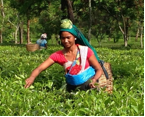
Photo © Lisa Mills
The tea-growing estates of India, established in the 1800’s, replaced former elephant habitat with plantations. Worker homes, roads, irrigation ditches, fencing and other human-driven activity expanded with the growth of the industry and continues to this day. These non-Elephant Friendly barriers pose a real threat to ancient migration patterns and thus the survival of elephant herds that must access reliable sources of water and food, as well as safe places to raise their young. Because natural cycles of native forest growth depend on seed dispersal by elephants as they move and deposit undigested tree seeds to forest openings, elephants are often referred to as the “Farmers of the Forest.” Elephant Friendly Tea™ will give tea drinkers around the world an important role in helping to ensure these iconic and charismatic animals have a future in the wild.
###
About University of Montana
The University of Montana is part of the Montana State University Education System in the U.S.A., and is home to the top-ranked Wildlife Biology Program in North America, as well as to one of the top Business Schools in the nation that emphasizes sustainable business development. Through the university’s Broader Impacts Group, wildlife conservation research and enterprise come together to help address some of the world’s toughest challenges around conservation in the face of major global changes. https://www.umt.edu/
About Wildlife Friendly Enterprise Network
WFEN is the global brand leader on threatened and endangered species-focused certification programs, from Gorilla Friendly™ to Predator Friendly® to Jaguar and Sea Turtle Friendly™ certification programs. WFEN represents global companies as well as grassroots farmers, ranchers, artisans, indigenous communities and conservation heroes from around the world including two World Bank Development Marketplace Award winners, a U.N. Equator Prize winner, leadership in the world’s marketplace for REDD+ Carbon Offsets, a Time Hero for the Planet, and a National Geographic Big Cats Initiative grantee. Certified Wildlife Friendly® products contribute to the conservation of over twelve million hectares of diverse wetlands, forests, and grasslands; protect keystone endangered species in Asia, Africa, Europe, the Americas, including the Snow Leopard, Elephant, Tiger, Cheetah, and Wolf; and benefit over 200,000 people through increased food security, income and employment. For more information visit: www.wildlifefriendly.org
Contacts:
Julie Stein, Executive Director
Wildlife Friendly Enterprise Network
julie@wildlifefriendly.org
Lisa Mills, Program Manager, Elephants and Tea
Broader Impacts Group, University of Montana
lisa.mills@mso.umt.edu
Banner photo credit: Subit Sawra
New conservation enterprise, Jungle Organics™, supports smallholder women farmers producing high quality spices in harmony with wildlife
FOR IMMEDIATE RELEASE
NEW DELHI, India – OCTOBER 26 2016 The Wildlife Friendly Enterprise Network (WFEN) and Jungle Organics™ headquartered in New Delhi, India are pleased to announce that Turmeric Powder, Ground Red Chili Pepper and Coriander Powder grown adjacent to Jim Corbett National Park – core habitat for tigers, leopards, elephants and other globally vulnerable wildlife – have earned Wildlife Friendly™ certification under the Jungle Organics™ brand. The spices are grown on women-operated organic farms that provide safe passage through an important corridor for wildlife as well as access to fresh water sources. In addition, unlike many other crops which are attractants to wildlife, these aromatic spices are not an attractant and actually tend to reduce human-wildlife conflict leading to better attitudes and greater acceptance among local communities towards wildlife. As a result there are fewer retaliatory killings of big cats which are already in jeopardy globally.
“This project hits the mark on so many counts,” said WFEN Director Julie Stein. “From research around the world we know that empowering rural women is the key to food security, nutrition and poverty reduction. And with apex predators in trouble everywhere we are delighted to welcome not only our first enterprise in India – but our first protecting tigers – a flagship endangered species with only a few thousand remaining in breeding populations in the wild. Jungle Organics™ is truly a leading edge conservation enterprise and was formed from inception around the concept of Wildlife Friendly™ farming. We are thrilled to see this kind of entrepreneurial innovation popping up in different ways around the world and supporting wildlife, women and their families. It is proof-of-concept that coexistence with large carnivores can work to support the triple bottom line of people, planet and profit.”
“Subsistence farmers are coexisting with wildlife across India, making the crops they produce and the role their farms play in allowing wildlife to roam free truly unique. The presence of tigers and leopards on the farms is an indicator of the health of the ecosystem and means that the spices and herbs are grown in pristine environments thriving on water from Himalayan rivers and nutrient rich soils. This results in higher potency spices and herbs with better medicinal properties that can contribute to health and well-being. We are excited to see recognition of the linkage between Wildlife Friendly™ farming and production of superior quality ingredients based on the interest coming from Delhi, Bombay and other cities, to purchase our products” said Jungle Organics™ Founder Kaavya Varma, who is an expert in implementing green economy strategies. “This is particularly critical because if spices that are used on an everyday basis can also contribute to protecting big cats then it is much easier for everyone to participate in saving tigers and leopards and can make conservation more mainstream.”
“With the multiple human-caused threats faced by wildlife, it is significant that Uttarakhand is the first place where the State Government has been forward thinking in supporting this enterprise” Ms. Varma explained, “and the State Organic Commodity Board has shown great leadership in partnering with Jungle Organics™ to enhance the livelihoods of small-holder farmers and create awareness amongst farmers about wildlife. These agricultural practices can have a significant impact on conservation and the incomes of women farmers in remote areas.”
In addition to tigers, other threatened and endangered wildlife using these forests and farms as habitat and corridors include leopards, Asiatic black bears, tigers, Himalayan serow, ghural, pangolins, elephants, peacocks, wild boars, sambar deer, porcupines, monkeys and kakar or barking deer. The farms are unfenced, making them particularly Wildlife Friendly™, and farmers use low tech but highly effective and labor intensive foot patrols throughout the night in separate groups of women or men making noises to reduce crop destruction.
Uttarakhand State contains the highest amount of forest cover in India and is home to 1000 leopards and 340 tigers, 10% and 16%, respectively, of the total populations of both animals in India. Leopards and tigers are threatened everywhere they still exist by poaching, a decrease in their prey base, protected area encroachment, deforestation, and roads. Nearly 70% of the farmers in India are smallholder family operations and many of them live in landscapes that overlap with wildlife making it especially important that Indian models of conservation support these farmers and that best practices which support wilderness and biodiversity conservation are replicated in other States beyond Uttarakhand.
###
About Jungle OrganicsTM
Jungle OrganicsTM works with 100% organic certified farmers who consciously choose to live by forests and wildlife, for the authenticity of their produce, even at the cost of low-yields on their lands. Using wildlife friendly practices, they ensure minimal human intervention to avoid taking away from the originality of the spices and herbs they grow. Our goal is to offer authentic spices and herbs, by supporting and resurrecting pristine farming practices that emphasize coexistence with wildlife, and thus, reduce wildlife-human conflict and the consequent damage that follows.
About Wildlife Friendly Enterprise Network
WFEN and its Certified Wildlife Friendly®, Predator Friendly®, Certified Gorilla Friendly™, and Jaguar Friendly™ and Sea Turtle Friendly™ certification programs represent grassroots farmers, ranchers, artisans, indigenous communities and conservation heroes from around the world including two World Bank Development Marketplace Award winners, a U.N. Equator Prize winner, leadership in the world’s marketplace for REDD+ Carbon Offsets, a Time Hero for the Planet, and a National Geographic Big Cats Initiative grantee. Certified Wildlife Friendly® products contribute to the conservation of over twelve million hectares of diverse wetlands, forests, and grasslands; protect keystone endangered species in Asia, Africa, Europe, the Americas, including the Snow Leopard, Elephant, Tiger, Cheetah, and Wolf; and benefit over 200,000 people through increased food security, income and employment. For more information visit: www.wildlifefriendly.org
Contacts:
Julie Stein, Executive Director
Wildlife Friendly Enterprise Network
julie@wildlifefriendly.org
Kaavya Varma, Founder & CEO
Jungle OrganicsTM
kaavya@jungleorganics.in

